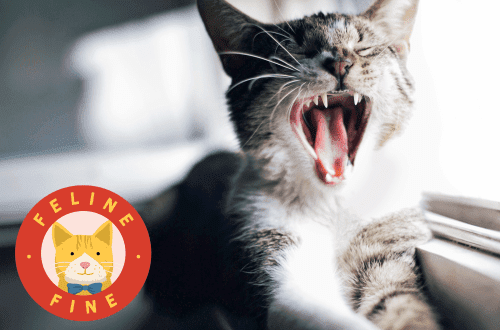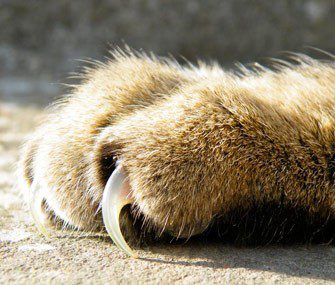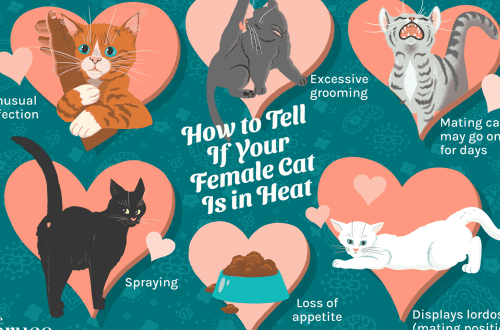
Why does a cat ride on the priest and what to do?

Contents
9 reasons why a cat rides on the butt
The list of factors that cause this behavior is quite extensive. Some of them are relatively harmless to the cat and can be easily eliminated even at home, while others can be dangerous for the animal and require a veterinarian’s consultation.
vermin
The presence of both internal and external parasites can lead to itching and restlessness in the back of the body in both adult cats and kittens. Helminths that live in the gastrointestinal tract, such as tapeworms, cause mechanical irritation of the anus and itching. At the same time, neither the worms themselves nor their eggs in the feces can be seen. The same applies to ectoparasites living on the surface (fleas, intradermal mites) – it is rarely possible to catch a flea in the animal’s fur, and itching and anxiety will be significant, both throughout the body and in the buttocks.

Blockage of the anal glands
She is one of the most common reasons why cats ride on the butt. Everyone, regardless of breed and age, has paraanal glands (sinuses), which are located on the sides of the anus and normally contain a slightly oily, liquid secretion of a dark color with a characteristic fishy odor.
In the normal state, the contents of the anal sacs are emptied with each act of defecation. But, if there is a blockage of the passage or the structure of the secret changes, it becomes difficult to remove it. Stretched, inflamed para-anal sacs cause discomfort and pain to the cat, which begins to wipe its ass on the floor or carpet in an attempt to somehow help itself.

Sticking something to the fur
Most often, long-haired cats suffer from this problem, of course, although such cases are not excluded in other breeds. Various objects can stick to the fur near the anus, which cause irritation in animals. Most often it is of course feces, but it can also be any other garbage. For the animal, of course, this does not pose any danger, it is enough just to carefully examine and clean the designated area from adhering particles.
Diarrhea
Whatever caused the cat to break the stool, he will experience discomfort in the perianal region (around the anus), which may manifest itself in the fact that he begins to wipe his ass on the floor after the toilet. The causes of diarrhea are quite diverse: parasites, infections, food stress. They always require expert advice.

mats
With poor hygienic care, untimely combing, especially in breeds with long hair, mats can form in various parts of the body, which are matted wool. They tighten the skin, pull the hair, promote inflammation of the skin underneath and are extremely unpleasant for the cat. Overweight animals are also prone to tangles due to the inability to reach the back and back of the body for grooming.
Itching
The very presence of itching, no matter in which part of the body, is a reason to go to the veterinary clinic. Quite a lot of pathologies occur with such a symptom, respectively, any home treatment or only symptomatic therapy will not completely solve the problem. It is important to determine what caused it, excluding ectoparasites, allergies to insect bites (for example, fleas), food allergies, atopic dermatitis, infections, and more.

Neoplasms in the anus
Most often, owners of older animals face this problem. Some tumors can itch on their own, while others will make themselves felt only when a secondary infection is attached. It is important to determine whether a benign or malignant process takes place and further work with the information received.
Injury
Various mechanical damage to the anus, perineum, perianal region can be obtained both during the time the cat rides on the pope due to the above reasons, and be the primary factor of discomfort in this place.
Constipation
Constipation (constipation) quite often accompanies cats living in an apartment. Excessive, unbalanced nutrition, lack of physical activity, the presence of a predisposition lead to the fact that the chair becomes irregular. The feces accumulated in the intestinal cavity greatly stretch its walls, causing the animal severe discomfort.
Concomitant symptoms
The described reasons for a cat, in addition to the fact that he rides on the priest on the floor, may manifest additional symptoms.
With inflammation of the glands, neoplasms, dermatological diseases, injuries around the anus, swelling, thickening and redness of adjacent tissues, violation of their integrity, soreness, bloody discharge can be noted. Cats plentifully lick these places, become irritable.
Constipation and diarrhea, as symptoms of a disease of the gastrointestinal tract, in addition to the absence of feces or vice versa, frequent defecation, may also be accompanied by vomiting, decreased appetite, and lethargy.
In the presence of tangles, hairballs, painful discomfort in this place, licking are noted.

Diagnostics
The most important step for the owner on the way to finding out the underlying reasons why the cat rides on the priest is contacting the veterinarian. The doctor will collect all the details of your pet’s life, conduct an examination of the cat, paying close attention to her back of the body. If the pathology of the paraanal glands is not detected, then the veterinarian will perform other diagnostic tests: scatological examination for eggs and larvae of helminths, blood and urine tests, radiography of the abdominal cavity and pelvic extremities, ultrasound examination of the abdominal cavity, cytological / histological examination for neoplasms or the presence of tissue damage.

What to do if the cat rides on the pope?
While your cat or kitten is at home, the first step is to inspect the anus area. If no damage or anything else conspicuous is found, then you can independently treat the pet against external and internal parasites.
In the absence of a positive effect from the procedures, you will need to contact a specialist.
In the presence of tangles, various contamination of wool in the perianal area, they can be carefully cut out, cleaned or contacted by a groomer.
If there are visible changes in the anus area, skin damage, blood, if you notice a pronounced anxiety in your pet when touching this area, there is diarrhea or constipation, lethargy, you should contact your veterinarian as soon as possible. At home, to fully help the pet, alas, will not work.
Help from a veterinarian
Depending on the cause causing the situation when cats ride on the bottom, the approach to treatment will be different:
If parasites are suspected or detected, antiparasitic treatments are necessary.
If the paraanal sinuses are blocked, they are mechanically cleaned or washed with a catheter and warm saline.
In case of inflammation / abscesses of the paraanal sinuses, antibiotic therapy, painkillers in the form of non-steroidal anti-inflammatory drugs, a protective collar are prescribed to prevent licking of the diseased area. But if this situation is repeated often, it is possible to completely surgically remove these glands.
In the presence of tangles, they are cut out, and the contaminated wool is gently washed.
With itching, treatment will be both local and systemic, depending on the disease that caused itching. Proper hygiene of the anal area is used, and antifungal, antibacterial, antipruritic drugs may also be needed.
In the presence of neoplasms in the anus, surgical removal is usually performed, followed by a histological examination of the excised tumor.

Prevention
When a cat rides on the priest, this condition can be prevented in several ways: it is necessary to provide the animals with timely grooming and hygiene care, proper nutrition, and activity. Do not forget about the annual scheduled veterinary examinations, preventive treatments against parasites, vaccinations.
If a cat rubs its booty on the floor: the main thing
Paraanal sinuses or glands are located on both sides of the anus, they are present in all cats.
If a cat rides on the floor on the floor, this does not mean that the cause of the itching is in this particular place. Discomfort in the anus can be caused by both local tissue damage and a more systemic disease.
Injuries, inflammation, neoplasms in the anus, constipation/diarrhea require an immediate visit to the veterinarian.
If the cat has long hair, it is necessary to carry out grooming procedures for it in a timely manner.
Often, an anamnesis (medical history) and an examination by a veterinarian are enough to make a diagnosis. But in some situations, instrumental diagnostics are required.
Answers to frequently asked questions
March 16 2022
Updated: 16 March 2022





